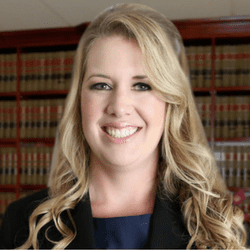If you ask a lawyer how to build a legacy, they will likely respond with, “create an estate plan.”
Many people cringe at the phrase “estate plan” because it sounds like something just for the rich, or something involving a morbid discussion about burial, or something involving a charitable donation.
These reactions are certainly understandable, but I am here to dispel a few common misconceptions about building a legacy.
Misconception #1 estate plans are for the rich.

Actually, estate plans (which often include a revocable living trust) are great tools for any homeowner and parent of minor children. Laws vary state by state, but in California, if a person dies with more than $150,000.00 to their name (far less than the value of many San Diego homes) probate court is triggered. The average probate case takes 1 to 2 years to resolve! If a parent wishes to avoid exposing their children to automatically inheritance at age 18, the best way to do so is to create a trust for minor children. These trusts can access funds for college or other expenses before the balance is distributed at a later age.
Part of the legacy you can build could be helping your family avoid the costly and time-consuming nuisance of probate court. Another part of the legacy you can build is preventing teenagers from inheriting substantial wealth at a young age.
Misconception #2 writing an estate plan means discussing death and hospitalization.

This is only partially true. Another major component to estate planning is making sure you scrutinize the assets and debts you currently have, and your plans for your family. When I work with clients, I make sure we fill out information about their pets. That way, if my clients go out of town on vacation, they have a pet-caregiver authorization letter at the ready should the pet have to go to the vet! I also have clients list out any online accounts (digital assets) they manage, so we can discuss who else has log-in credentials and when the accounts (like Facebook and LinkedIn) should be closed.
Building a legacy can mean putting your end-of-life desires in writing. Yes, it is helpful for loved ones to know what level of hospital treatment you desire. But building a legacy is also very much about preparing for times in your life when you may need someone else to sign your name for you, or log-into an account, or take your dog to the vet with minimal fuss!
Misconception #3 estate plans are for folks leaving money to charity.

Certainly, for some families with enough wealth to cover retirement, healthcare costs in the sunset years, and funds left over for family and friends, estate plans are a viable way to leave a charitable remainder gift to a philanthropic cause. However, each and every adult should consider drafting an estate plan. Why? Let’s take the example of a college student.
Building a legacy is something even a college freshman can (and should!) do. Every adult should have these three important low-cost documents handy: (1) power of attorney to manage financial accounts, (2) HIPPA release for medical records and (3) nomination an agent for all health-care decisions.
An 18-year-old goes overseas and their credit card is frozen. Mom and Dad cannot unfreeze the account without the student’s permission and involvement. The 18-year-old then gets mono and asks Mom and Dad to send the records to their home-town doctor. Mom and Dad have no authority to speak to the student health clinic to get the documents transferred. And last, the student impulsively proposes to a ne’er-do-well and gets injured while rock-climbing. At the hospital, Mom and Dad have no way to trump false statements made by the untrustworthy-fiancé.
If you are ready to build a legacy through the creation of an estate plan, kudos! If you already have an estate plan but are wondering if you should dust it off, I applaud you for writing one in the first place! For free FAQs on hiring an attorney or determining when to update a will or trust, feel free to email me. Finally, I congratulate you on staying informed about how to take action to benefit your family – building a [legal] legacy or otherwise, your loved-ones are lucky to have you!
 About the Author: Anna Howard is the founding attorney of A. C. Howard Law. She practices estate planning because she is passionate about helping people secure their family’s future. She conducts her law firm in accordance with the golden rule: she treats clients how she wishes to be treated – with compassion, with respect and with a smile. She is a certified estate planner through NICEP, and regularly attend seminars regarding the latest trends in writing wills and trusts.
About the Author: Anna Howard is the founding attorney of A. C. Howard Law. She practices estate planning because she is passionate about helping people secure their family’s future. She conducts her law firm in accordance with the golden rule: she treats clients how she wishes to be treated – with compassion, with respect and with a smile. She is a certified estate planner through NICEP, and regularly attend seminars regarding the latest trends in writing wills and trusts.
Photos from FreeDigitalImages.net





